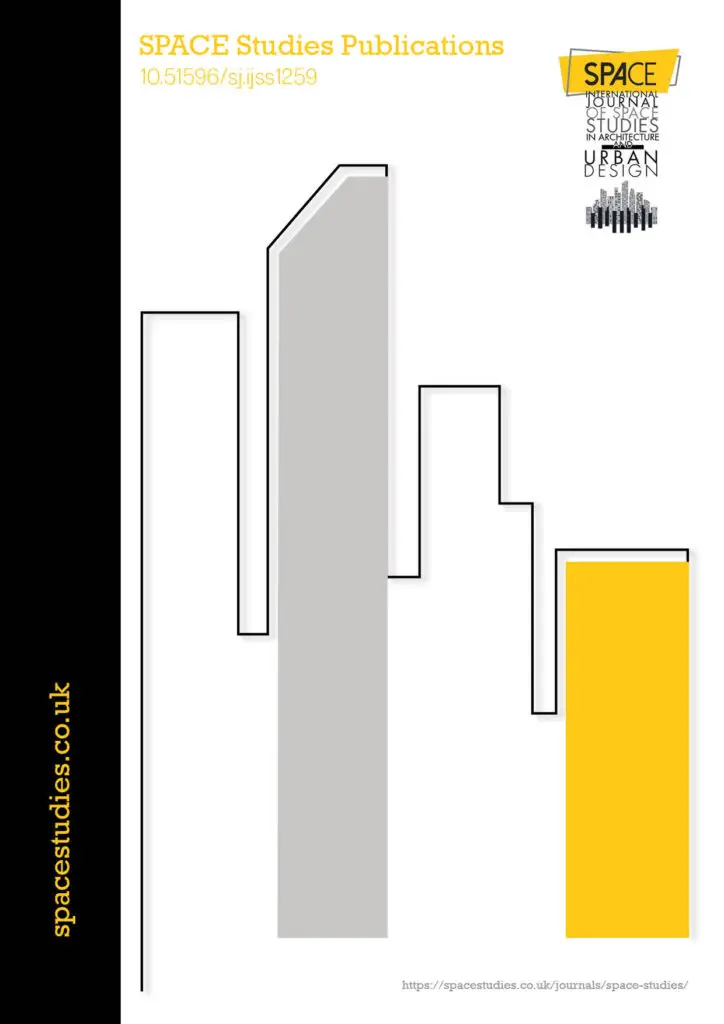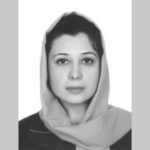
Sumita Singha
B Arch (Hons), M Phil RIBA, United Kingdomhttp://orcid.org/0000-0001-7505-4132
,Arianna Scaioli
Arch., PhD Candidate, Politecnico di Milano (DAStU), Italyhttp://orcid.org/0000-0003-3525-621X
The design of cities and buildings affects women more than men because they were designed by and built for men. Design continues to favour the ‘universal man’, i.e., a white, able-bodied man of about 40 years. The traditionally male-dominated vision of cities produces and reproduces spaces according to reconceived gender roles. The design of external spaces and facilities such as streets, parks, transport and infrastructure, community, and workplace spaces – traditionally associated with the male sphere – all work in a way that women are unable to use them fully. So, the city is divided spatially and temporally by gender- spaces are not fully usable by 50 per cent of the population that women constitute. Failing to consider a gender perspective in design could deteriorate, increment, and catalyse an already gendered environment. At the same time, the city of the evening and night is violent and frightening for women, who have also been subjected to sexual violence, harassment, and discrimination in such spaces during the day. The fact that globally, women outnumber men has not given them the agency to change matters; the fact that the world has seen many women in positions of power, yet much remains to be done in advancing women’s position in society; and the fact that women are heading design practices, yet women-friendly design remains uncommon. The number of women architects, urban planners, surveyors, and engineers still remains low, so gender mainstreaming of urban design is not commonplace. Are these a problem of those in power who do not yet consider the practical, political, and legacy issues arising from a gendered city? Or is this a long-standing problem of patriarchy and history that cannot be overcome so easily? Or can it be a matter of thinking differently, designing innovatively, and working inclusively? We will look at issues of urban design that affect women more, initiatives, and examples of inclusive urban design that empower women and girls from all over the world, reflecting on the relationships between spatial and social models and the role of design in these processes.
Restricted Content
This article is restricted. You can purchase access to the individual article or access all articles using a membership with a subscription.
£35.00 per Month.
Student priced discounts on conference registrations, SPACE shop and e-journals. Access to members only areas on the website. Proof of student eligibility required.
Access to Journal subscription.
No potential conflict of interest was reported by the authors.
Sumita Singha OBE RIBA is an architect, teacher, and writer with awards including UIA: UNESCO, Women In Business, Atkins Inspire and an OBE for services to architecture. She set up Architects For Change, the Equality forum for architects, and is past Chair of Women In Architecture, UK. She taught the course ‘Women in Architecture’ at Politecnico Di Milano and is the author of Thrive: A Field Guide for Women in Architecture, 2024.
Arianna Scaioli is an architect and PhD candidate at Politecnico di Milano, DAStU, Italy. Her research explores the spatialisation of gender equality and understanding how this notion can shape the morphology of the built environment. She is collaborating with Sumita Singha on the research project, ‘Feminist by Design’ which investigates urban design from a feminist perspective.
This paper was presented as a keynote speech by Sumita Singha at the SPACE International Conference 2022 on Gender, Space and Architecture and selected for publication in this Journal.
Andreola F., Muzzonigro, A. (2022). Milan Gender Atlas. Siracusa: LetteraVentidue.
Appleton, J. (1975). The Experience of Landscape. London and New York: Wiley.
Beard, M. (2017). Women and Power: A Manifesto. London: Profile Books.
Bulkeley, H., & Betsill Michele M. (2013). Cities and Climate Change. London/ New York: Routledge.
C40 Cities, Women4Climate. (2019). Report: Gender-inclusive climate action in cities. Retrieved from: https://w4c.org/sites/default/files/201902/W4C_REPORT_Gender%20Inclusive%20Climate%20Action%20in%20Cities_BD.pdf.
Criado-Perez, C. (2019). Invisible women: Data bias in a world designed for men. New York: Abrams Press.
Darke, J. (1996). The Man-Shaped City. In C. Booth, J. Darke & S. Yeandle (Eds.), Changing Places: Women’s Lives in the City (pp. 88-99), London: Paul Chapman Publishing Ltd.
GIZ, UN-Habitat & GenderCC. (2015). Gender and Urban Climate Policy. Gender-Sensitive Policies Make a Difference. Retrieved from: <https://gendercc.net/fileadmin/inhalte/dokumente/8_Resources/Publications/Guidebook_Gender_and_Urban_Climate_Policy_June_2015.pdf> (20/10).
Hawken, P. (2017). DROWDOWN. The Most Comprehensive Plan Ever Proposed to Reverse Global Warming. New York: Penguin Books.
Hayden, D. (1980). What Would a Non-Sexist City Be Like? Speculations on Housing, Urban Design, and Human Work. Sign, 5(3), pp. 170-187.
Htun, M., & Jensenius F. R. (2020). Fighting Violence Against Women: Laws, Norms & Challenges Ahead. Daedalus, 149(1), 144–159.
Jacobs, J. (2009). The death and life of great American cities. Cles: Einaudi.
Matrix. (1984). Making Space: Women and the Man-Made Environment. London: Pluto Press.
Metcalf, K. (2015). The Power of Grassroots Action for Women’s Empowerment and the Environment. In J. Hawley (Ed.), Why Women Will Save The Planet. London: Zed Books.
Newman, O. (1973). Defensible space: Crime prevention through urban design. New York: Macmillan.
OECD. (2020). Global Forum on Environment, Session 7 Environmental justice and empowering women and youth. Mainstreaming gender and empowering women for environmental sustainability. Retrieved from: https://www.oecd.org/env/GFE-Gender-Issues-Note-Session-7.pdf.
Sanchez de Madariaga, I. & Neuman, M. (2020). Engendering Cities. Designing Sustainable Urban Spaces for All. New York: Routledge.
Terry, G. (2009). No climate justice without gender justice: An overview of the issues. Gender and Development, 17(1), 5-18.
Till, J. (2021). Architecture after Architecture. In H. Harriss, R. Hyde, & R. Marcaccio (Eds.), Architects after architecture: alternative pathways for practice (pp. 29-37). New York: Routledge.
Tronto, J. C. (2005). An ethic of care. In A. E. Cudd, R.O. Andreasen (Eds.), Feminist theory: a philosophical anthology (pp.251-263) Blackwell Publishing: UK Malden, Oxford.
UNDP, UNWomen. (2019). Gender Equality as an accelerator for achieving the SDGs. Retrieved from: https://www.undp.org/publications/gender-equality-accelerator-achieving-sdgs.
World Bank Group. (2018). Women, Business and the Law 2018. Retrieved from https://openknowledge.worldbank.org/handle/10986/29498.
Web References
[1] Erica Belcher, All Londoners should be free from the threat of sexual harassment on public transport, 17 January 2020 https://www.centreforlondon.org/blog/women-safety-travelling-in-london/ (Last Access: 16.03.2022)
[2] Gender and public transport, 2019 https://wbg.org.uk/wp-content/uploads/2019/10/TRANSPORT-2019-1.pdf (Last Access: 15.08.2022)
[3] https://cohousing.org.uk/case-study/new-ground-older-womens-cohousing-community-owch-high-barnet/ (Last Access 18.07.2022)
[4] European Commission. New European Bauhaus – Shaping more beautiful, sustainable and inclusive forms of living together https://new-european-bauhaus.europa.eu/index_en (Last Access: 25.03.2022)
[5] https://transportgenderobservatory.eu/resource/col·lectiu-punt-6-spain/
Sign in to continue
Not a member yet? Sign up now

Administrative Assistant
Deniz Bol is the Administrative Assistant at SPACE Studies, where she supports the day-to-day operations and contributes to the smooth functioning of the organization. Alongside her administrative role, Deniz is an artist with a passion for creative expression. She is currently pursuing her studies at the University of the Arts London (UAL), where she continues to develop her artistic practice. Her organizational skills, paired with her artistic background, make her a valuable asset to the SPACE Studies team, helping bridge the worlds of administration and creativity.
E-mail: denizbol@spacestudies.co.uk

Digital Marketing Consultant
Murat Oktay is the Digital Marketing Consultant at SPACE Studies, where he provides strategic guidance to enhance our digital presence and community engagement. With a keen eye for digital marketing trends and best practices, Murat plays a key role in refining our content strategy, expanding our online reach, and connecting with a wider audience. His expertise in digital tools and innovative marketing techniques aligns with SPACE Studies’ mission as a social enterprise, ensuring that our campaigns are impactful and resonate with our commitment to social responsibility in architecture and design. Outside his work with SPACE Studies, Murat stays at the forefront of digital marketing advancements, continually exploring new tools and sharing his insights with peers.
E-mail: muratoktay@spacestudies.co.uk

Marketing Manager
Santa Noella Matabaro is the Marketing Manager of SPACE Studies, bringing her expertise in strategic planning, community engagement, and relationship-building to the organization’s mission as a social enterprise. With a background in Politics & Law from the University of Kent, Santa combines analytical insights with a creative approach to advancing SPACE Studies’ vision of fostering interdisciplinary dialogue in architecture, design, and urban planning. In her role, she develops targeted campaigns and strategic partnerships, building brand presence and fostering meaningful connections with the community. Santa’s collaborative and people-centered approach enhances SPACE Studies’ impact, aligning with its commitment to social responsibility and innovation in the built environment.

Academic Content Coordinator
Betul Uckan is an architect and dedicated academic with a background in both architectural practice and research. She holds a Master of Science in Architectural Design and a Bachelor’s degree in Architecture from Istanbul Technical University, where she cultivated her interests in architectural theory and design. Betul has gained experience as a research assistant in various universities, contributing to design studios and foundational courses. She has also worked in the field as an architect with projects focused on design, modeling, and construction, and has been involved in notable projects, including Maltepe Piazza and Emaar Square in Istanbul. With her expertise spanning both digital and material architecture, Betul brings a dynamic, interdisciplinary approach to her role as the Academic Programme Coordinator.
E-mail: betuluckan@spacestudies.co.uk

Senior Researcher & Managing Editor
Arghavan Pournaderi is a senior researcher in the field of architectural conservation and restoration, with an academic foundation in architecture and specialized expertise in historic sites and buildings. Completing her PhD at the Art University of Isfahan, Iran, in 2019, her research has contributed to the understanding of Iran’s architectural heritage, with a focus on Isfahan’s urban and architectural evolution during the Safavid period. In addition to her extensive research, Dr. Pournaderi has held academic positions at various institutions in Isfahan, teaching at both undergraduate and graduate levels. Her work extends beyond academia as she contributes to SPACE Studies as Senior Researcher & Managing Editor, where she oversees scholarly initiatives that foster deeper interdisciplinary dialogue in architecture and heritage conservation.

Senior Researcher & Educational Consultant
Gregory Cowan is a Senior Researcher and Educational Consultant at SPACE Studies, where he leads initiatives that bridge academic research and practical application in architecture and urban design. He contributes his extensive experience to mentoring postgraduate students, designing educational workshops, and guiding community-focused projects. Gregory is also a freelance academic at the University of Wales Trinity St David and the University of Westminster, and founder of The Architects Coach. His expertise spans architectural workspace analysis, professional development, and positive intelligence coaching.
E-mail: gregorycowan@spacestudies.co.uk

Senior Researcher
Alison Hand is a Senior Researcher at SPACE Studies. She is a painter and writer with an MA in Painting from the Royal College of Art. Alison’s work focuses on creating absurd, unstable heterotopic spaces and dialogues with painting history. She is currently the Artist in Residence for King’s College London Philosophy Department on the Dreams and Wakeful Consciousness Research Project, exploring themes of time and simultaneity in new work. Alison has received numerous awards for her painting and is currently working with Bloomsbury Publishers on a major essay on Drawing in Contemporary Art. She is also the BA Fine Art Programme Leader at Art Academy London and co-director of Cement Arts. Her role at SPACE Studies involves leading research projects, mentoring junior researchers, and contributing to our artistic and academic initiatives.
E-mail: alisonhand@spacestudies.co.uk

Senior Researcher
Julian Wild is a Senior Researcher at SPACE Studies and the Sculpture Program Leader at The Art Academy London. With over 30 years of experience in creating and exhibiting sculptures, Julian has worked with high-profile clients such as Cate Blanchett and the University of Oxford. A fellow and former vice president (2015-2019) of the Royal Society of Sculptors, his work has been featured at venues like Modern Art Oxford and Chatsworth House. At SPACE Studies, Julian leads research projects, mentors junior team members, and conducts workshops that blend art and urban studies. In his free time, he enjoys attending academic conferences and crafting new sculptures.
E-mail: julianwild@spacestudies.co.uk

Director of Publications & Senior Researcher
Elif Suyuk Makakli (Associative Professor) earned her PhD in Architecture from the Vienna University of Technology, where she studied the impact of technology on architecture under Prof. William Alsop. With extensive experience in architectural practice in Istanbul and Vienna, she is now an Associate Professor at FMV Isik University, focusing on design education and technology. At SPACE Studies, Elif serves as both the Head of Publications and Senior Researcher, guiding scholarly content and contributing to research initiatives. She is dedicated to mentoring and fostering design innovation.
E-mail: elifsmakakli@spacestudies.co.uk

Director of Research
Sanaz Shobeiri is an architect, urban designer, and landscape urbanist, currently a postdoctoral researcher in the Department of Planning at Queen’s University Belfast. Her research focuses on age-gender inclusiveness and the interplay of architectural, historical, political, and sociocultural dimensions in urban spaces, exemplified by her project on city centres in Belfast and Tehran. Sanaz holds a PhD in Urban Planning from the University of Tehran and has a robust portfolio in sustainability and urban theory. As Head of Research at SPACE Studies, she leads innovative research initiatives, fostering collaboration and academic excellence. In her free time, Sanaz enjoys exploring urban landscapes and supporting community development.
E-mail: sanazshobeiri@spacestudies.co.uk

Creative Director
Selin Gulce Sozmen is the Creative Director at SPACE Studies, where she leads the artistic vision and design strategy for the organisation. With a background in graphic design and visual arts, Selin has been instrumental in creating visually captivating books, journals, and event posters. Her role extends to developing and coordinating workshops and creative projects, ensuring that all visual materials meet the highest standards of quality and innovation. Selin’s dedication to creativity and excellence drives the visual and creative direction of SPACE Studies, making her an essential part of the team.
E-mail: selinsozmen@spacestudies.co.uk

Founder & Executive Director
Pinar Engincan is the Founder and Executive Director of SPACE Studies, an innovative social enterprise focused on fostering interdisciplinary dialogue and education in architecture and urban design. With extensive experience as a lecturer and researcher, Pınar holds a PhD in Architecture and has led numerous academic initiatives. Her career includes curriculum development, international collaborations, and research on housing and urban policies. Passionate about bridging academia and community, she champions accessible education and consultancy services, empowering individuals to shape the built environment.
E-mail: pengincan@spacestudies.co.uk